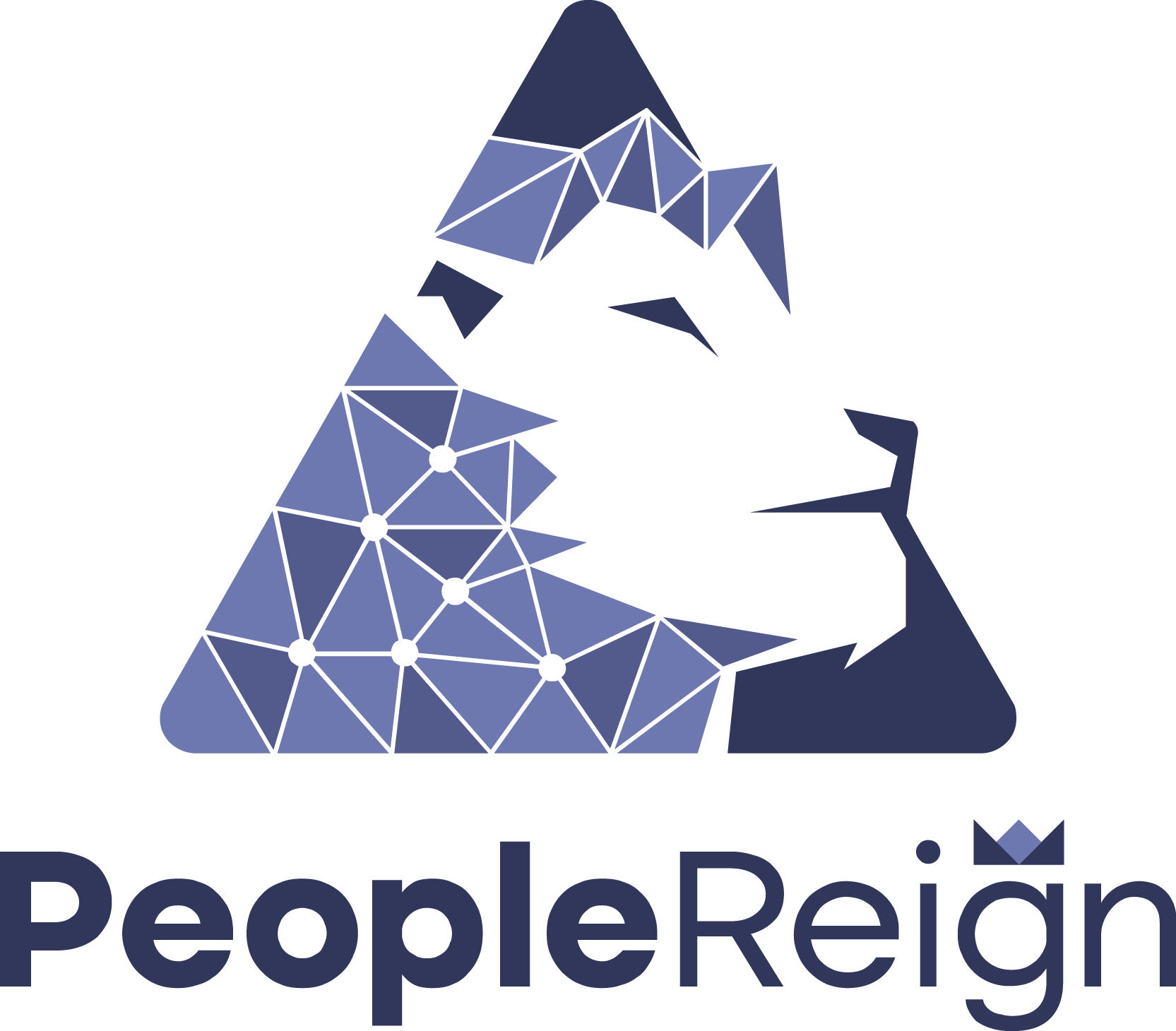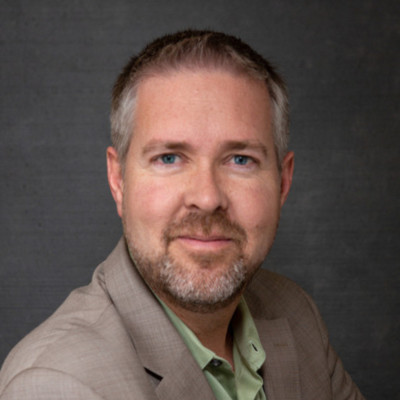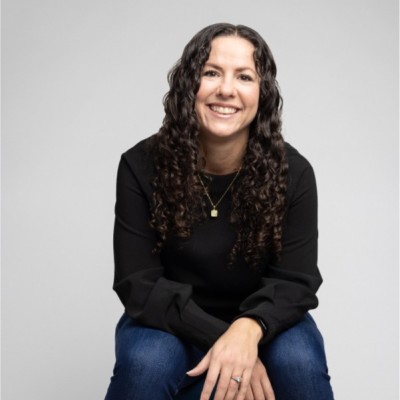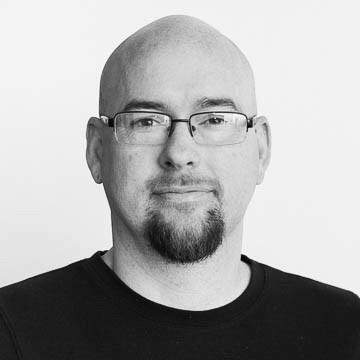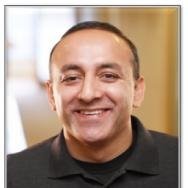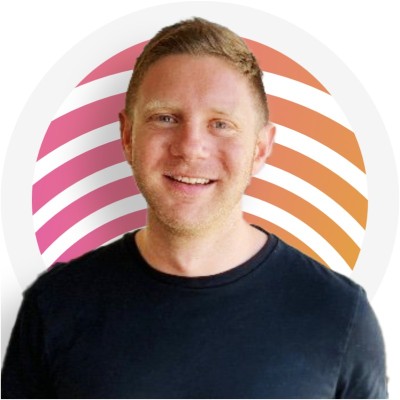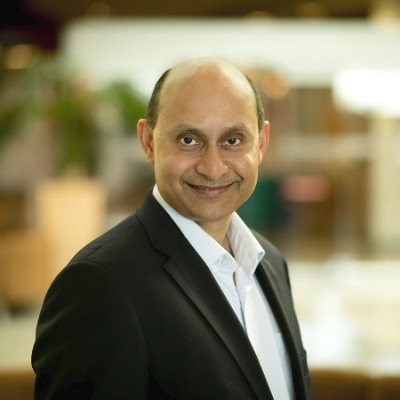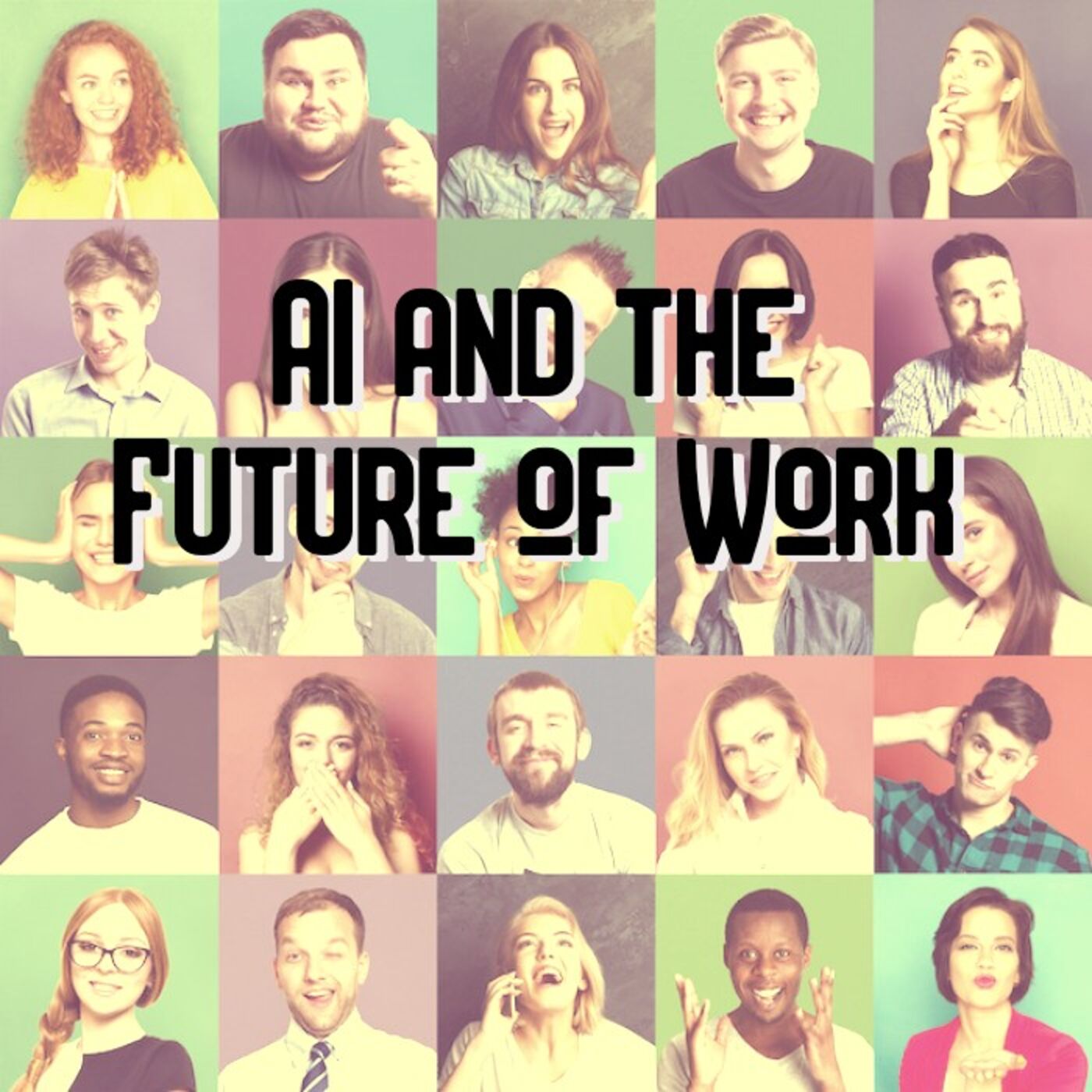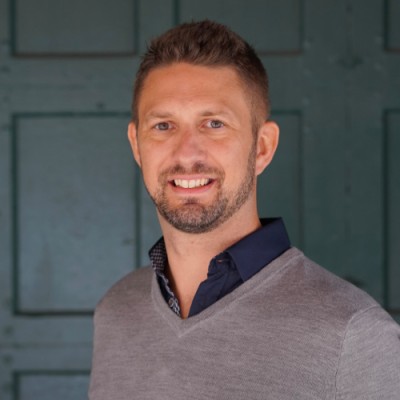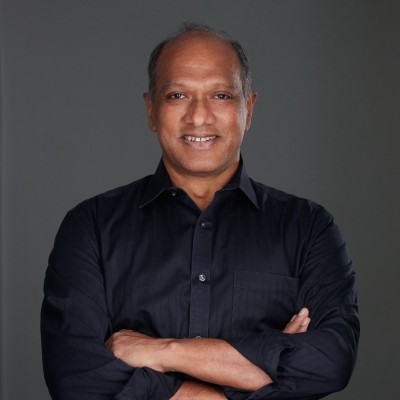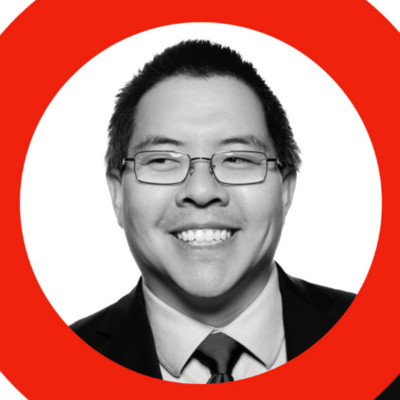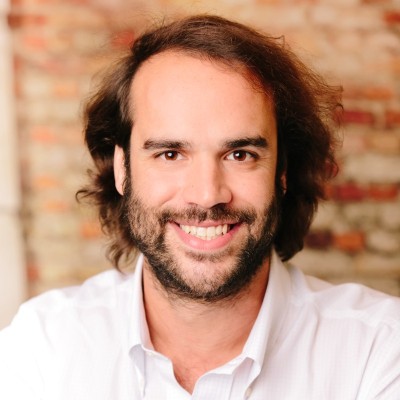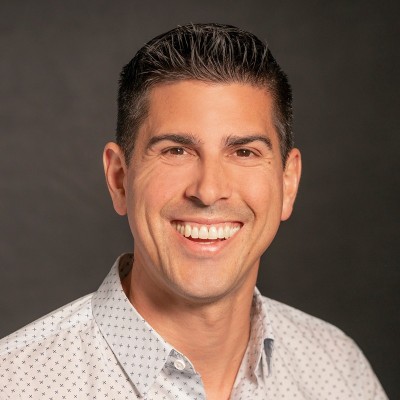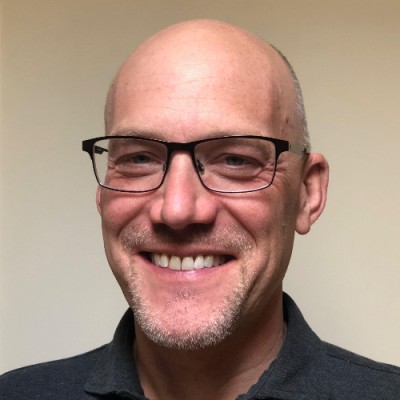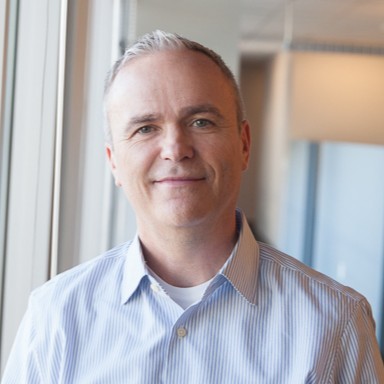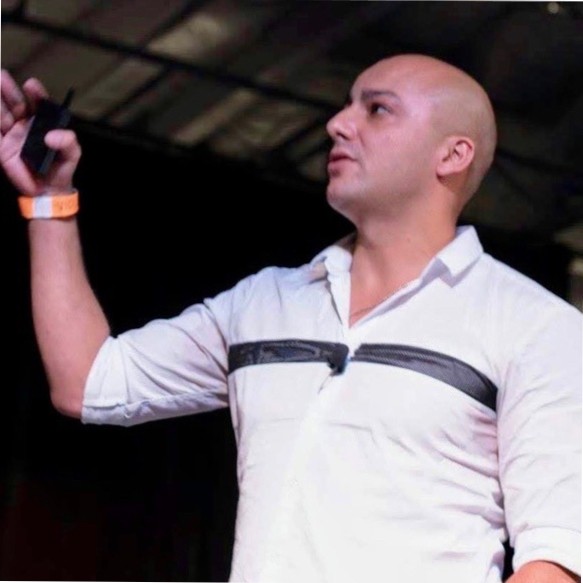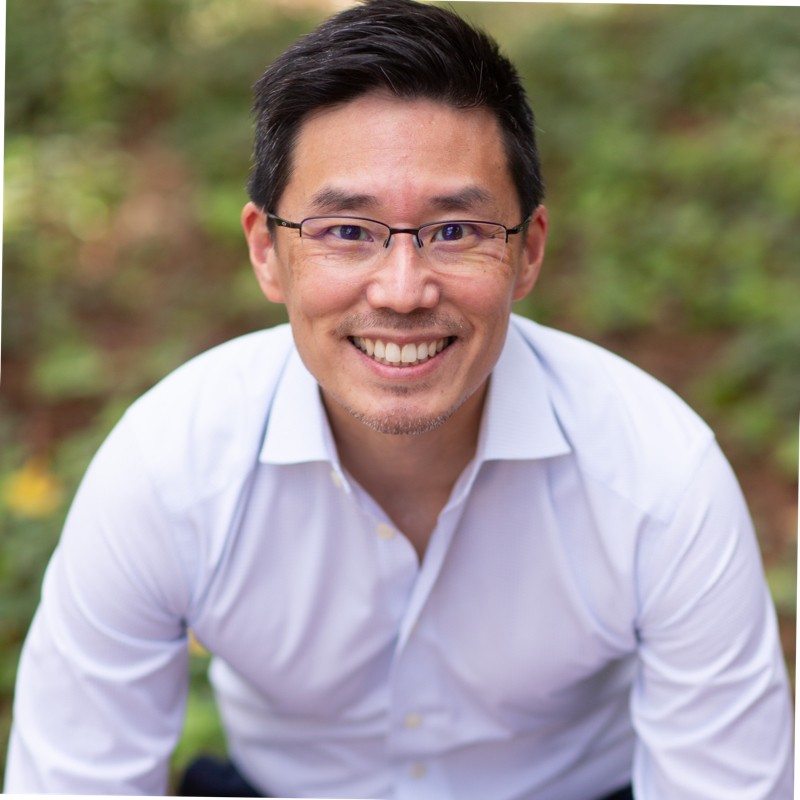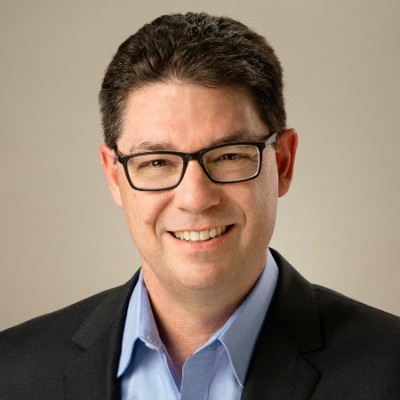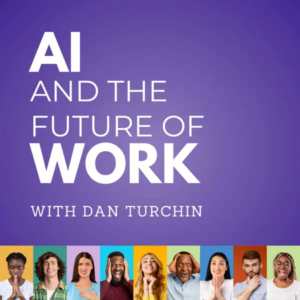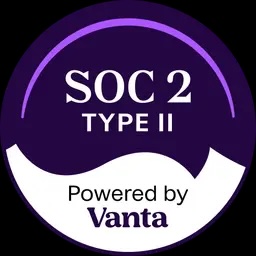AI and the Future of Work
-

Episode Number : 193
We’ve met future of work visionaries recently like Gary Bolles, Dr. John Boudreau, Mark McCrindle, and Josh Bersin. All have shared unique perspectives on how AI is redefining the employee experience. Today’s guest belongs on that Mt. Rushmore of future of work luminaries.
Show moreShow lessJosh Drean is Co-founder & Director of Employee Experience at The Work3 Institute, AI + Work Advisor at the Harvard Innovation Labs, and Co-author of Employment is Dead (Harvard Business Review Press, 2024)
His work has been featured in Harvard Business Review, Forbes, Fast Company, and The Economist and he has made appearances on The Today Show, NBC, and FOX Business. He speaks internationally to bring work tech insights to digital-first leaders who value human-centric work experiences.
Listen and learn…
- How AI is changing our relationship with work
- Work 3… vs. work 1 and work 2
- How the metaverse is enabling a global talent marketplace
- What RTW is doing to the relationship between employees and employers
- Why “employment is dead”… but we’ll soon enjoy work more as a result
- “There are two camps… those who are embracing AI… and those who will become obsolete.”
- Why employee surveillance is the wrong approach
- Why “passion is future-proof”
References in this episode…
-

Episode Number : 192
Today’s guest has been bringing families together online since 1997 when he founded Ancestry.com which has served more than 13 billion profiles, amassed 40 billion people records, and generated over a billion dollars in revenue. He followed that up with FamilyLink which he founded in 2007 and today has more than 50 million users.
Show moreShow lessFor the past several years, Paul Allen has been on a new adventure having founded Soar.com in 2017. He and the team are connecting employees to stories from trusted sources to help them make better, more informed decisions.
Soar indexes millions of hours of video and audio content in domains as diverse as academic lectures, political hearings, and stump speeches. Not surprisingly, he and the team are using AI to make all that content discoverable and accessible.
Paul is a sought after speaker, a director of the Human Justice Foundation, and is one of the most mission-driven entrepreneurs of our generation.
Listen and learn…
- Paul’s number one business lesson
- How Paul “uplifts humanity” with AI
- Why the “factory education system” doesn’t work
- Why AGI won’t be the end of civilization
- How an AI studio for audio transcription works
- The role of CitizenGPT… and why it won’t hallucinate
- How AI is restoring lost human connections
- How to detect and mitigate the danger of deepfake video content using a blockchain
- What it means to be an ethical publisher of content in the age of AI
- Paul’s (not so obvious) secret to success
References in this episode…
- Guillermo Corea from SHRM on AI and the Future of Work
- The current state of AI ethics
- Sanchez’ WHY Institute
- Sarah Allen, acclaimed author (and Paul’s daughter)
- The autobiography of Booker T. Washington
-

Episode Number : 191
Anyone who has ever hired a new employee knows how important and broken the background check process is. The experience is awful for candidates and employers. Plus, it’s inherently unfair for under-represented and non-traditional candidates. Imagine a world where hiring the best people is easier and faster and all forms of verification data are provided automatically from trusted sources.
Show moreShow lessToday’s guest is making that vision a reality. Denise Hemke is the Chief Product Officer at Checkr, the amazing company making employee screening more fair for everyone. Checkr has raised nearly $700M since its founding in 2014. Denise heads up product management, design, and program management after having served in various leadership roles at Workday, including most recently GM for Analytics. Denise is also the San Francisco chapter lead for the excellent organization Products That Count started by friend of the podcast SC Moatti.
Listen and learn…
- How to fix the broken background check process
- How to give candidates with non-traditional backgrounds access to the labor force
- How technology is making the hiring process more fair and helping workers get paid faster
- How to use AI to reduce bias in hiring decisions
- How AI used for background checks should be regulated
- What Denise learned about building customer communities as a General Manager at Workday
References in this episode…
-

Episode Number : 190
AI is here to accelerate the world’s creativity. In fact, it’s one of the things generative AI does best. Imagine a world where personalized campaigns help products you love find you. Today’s guest did just that and he created Evolv AI to help brands connect with customers across all digital channels.
Show moreShow lessTyler Foster is the CTO of Evolv AI, a platform that helps brands improve conversion and experiment faster. He started the company with CEO Michael Scharff in 2019 and together they’ve grown it into an early leader in AI-first digital experimentation having helped brands like Safelite, DirectTV, and Verizon. Prior to Evolv AI, Tyler was the founding CEO and Chief Architect of Senient Systems and an early Software Engineer at Cloudera.
Listen and learn…
- How a farmhand and SCUBA diver became an AI developer
- How AI is helping brands target consumers
- The tradeoff between personalization and data collection
- How to eliminate bias in automated decisions
- Will AI eliminate creative jobs?
- How society needs to adapt to new definitions of work imposed by AI
- Why we need to disconnect ideas from tools and processes
- What does it mean that we’re entering a “post-truth” era?
- Why AI is more fair than humans
References in this episode…
-

Episode Number : 189
Tim Guleri has had a remarkable run at Sierra Ventures since 2001. He has invested in transcendent companies including Sourcefire and MakeMyTrip which both went public. Before that, Tim had a successful career as an entrepreneur and exec at companies like Scopus and Octane which was acquired by Epiphany in 2000.
Show moreShow lessSierra has one of the strongest future of work and AI portfolios that includes companies like Paro, Krisp, and SupportLogic which acquired Emtropy Labs which was founded by great former guest Harish Batlapenamurthy. In full disclosure, Sierra and I are both investors in ArmorCode.
Listen and learn…
- Why the most successful venture investors were previously entrepreneurs
- Tim’s thesis for investing in gen AI customer journey company Simulate
- How Tim identifies “gen AI whitewashing” when hearing pitches
- Why gen AI is more than just another platform shift
- How gen AI startups can beat Big Tech incumbents
- Why all companies are ultimately “financial products”
- Sierra’s primary data from CIOs: “…they’re spending money on use cases that unlock employee productivity”
- What Tim means by “build horizontally but execute vertically”
- Which jobs AI will eliminate vs. augment
- Tim’s “one that got away” pitch from his early days at Sierra
References in this episode…
- According to CNBC, 69% of U.S. adults are uncomfortable with AI that can mimic human thinking
- Ashu Garg from Foundation Capital on AI and the Future of Work
- Rory O’Driscoll from Scale Venture Partners on AI and the Future of Work
- Sierra Ventures
-

Episode Number : 188
We’ve had interesting conversations about remote-first work with leaders like Jordan Husney, Parabol CEO, and Darren Murph who at the time was the global head of remote work at GitLab (thank you Darren for the intro to Adam). Today’s guest has been building a platform to make distributed teams productive since long before it was fashionable. Adam Nathan founded Almanac in January of 2019 to challenge incumbents like Microsoft Office and Google’s GSuite.
Show moreShow lessSince then, he and the team have enabled organizations like Cisco, Credit Karma, and ByteDance to collaborate in shared workspaces.
Adam has raised more than $40M to date across two rounds from a legendary group of investors that includes Floodgate, Tiger Global, and General Catalyst. Prior to Almanac, Adam did his undergrad at Duke and he received his MBA from Harvard. He’s also an active volunteer for The Salvation Army.
Listen and learn…
- How being a product manager at Apple and Lyft inspired Adam to start a company to avoid wasting time at work
- What’s unique about remote-first work
- Why remote teams need structure and transparency to be productive
- How to eliminate time wasted in meetings without losing opportunities to build trusted relationships
- How to charge for new LLM features in SaaS products
- Why we tolerate LLM hallucinations
- Where there’s a gap in the market for a better collaboration experience
- What Adam has learned from his entrepreneurial journey
References in this episode…
- Jordan Husney from Parabol on AI and the Future of Work
- Darren Murph from GitLab on AI and the Future of Work
- Why we need to shut down AI development to prevent AGI
- Almanac.io
-

Episode Number : 187
Durga Mulladi is the SVP & GM for Technology Planning & Edge Solutions at Qualcomm Technologies, Inc., the iconic company best known for enabling cell phones via its CDMA technology and chipsets that were first demonstrated in 1985. Durga has been an integral part of Qualcomm’s growth having spent nearly 26 years there in various technology leadership roles.
Show moreShow lessHe holds 57’ patents, is a senior member of IEEE, received his PhD in ’98 from UCLA, and was awarded Qualcomm’s IP excellence award. Durga’s list of accolades and accomplishments goes on for days. We’re all fortunate to learn from a wireless pioneer and true tech legend.
Listen and learn…
- Durga’s insights from more than 25 years pioneering wireless technology
- An insider’s view of Qualcomm’s formula for success
- How networks and chips enabled the birth of the smartphone
- Qualcomm’s AI roadmap
- How soon we can expect LLMs running locally on phones
- How AI takes advantage of the unique capabilities of 5G networks
- How to figure out what transactions happen on the device vs. in the cloud
- How LLM fine-tuning may soon happen on the edge of the network or on the device
- What size LLMs can be run locally while managing power consumption
- How to improve consumer trust in LLMs
References in this episode…
-

Episode Number : 186
In 2020 when today’s guest founded her company the transformer architecture was relatively new and OpenAI was a science experiment funded by Elon Musk to ensure that AGI benefits all humanity. She and her team commercialized an early version of a co-pilot for writing content long before we appreciated the value of next-word prediction.
Show moreShow lessSince then, May Habib and the team have raised $21M from an exceptional group of investors including Insight Partners and Gradient Ventures. Today, Writer helps company authors comply with style and brand guidelines and also ensure grammatical accuracy. It’s used by an amazing list or organizations including Spotify, Intuit, and Uber.
Prior to Writer, May co-founded Qordoba and was a Global Shaper for the World Economic Forum after graduating from Harvard with a BA in Economics.
Listen and learn…
- How May got her start in NLP
- What enterprise leaders don’t understand about the current state of generative AI
- How to speak to your data using LLMs
- Why Writer uses graph databases instead of vector databases for generative AI
- How Writer mitigates the impact of bias, copyright infringement, and hallucinations when using LLMs
- How AI is being used to replace tasks people hate… without eliminating jobs
- How AI helps users with neurodiversity issues like ADHD
- How May navigated a tough company pivot
References in this episode…
- Mona Akmal, Falkon CEO, on AI and the Future of Work
- Alex Capecelatro, Josh.ai CEO, on AI and the Future of Work
- Making the web more accessible with AI for those with disabilities
-

Episode Number : 185
Today’s guest created one of the largest communities for conversational AI and generative AI enthusiasts. Pete Erickson is the founder of Modev which hosts the popular VOICE & AI conference and also others including the GovAI Summit.
Show moreShow lessPete started the company back in 2009 and has since produced over 150 events across 89 countries that have connected more than 125,000 people. Pete and the team have created communities for tech companies like Samsung and Amazon. Today, we get a glimpse into the mind of a great entrepreneur who is focused on making AI education accessible to everyone.
Listen and learn…
- How Modev went from a few people in a pizza shop… to a conversational AI event with more than 1,000 attendees
- How Modev trained developers to build Alexa skills… in 2009
- How new AI regulation is impacting the generative AI developer community
- How Pete would regulate generative AI
- About Sam Altman’s request to Congress for OpenAI to be regulated
- Should we expect AI vendors to regulate themselves?
- What we can learn from GDPR in Europe about forthcoming AI regulation
- How AI will transform the entertainment industry
- Which jobs will be replaced by AI… and which ones are future-proof
- What big news Pete will be announcing at the Voice & AI conference
References in this episode…
-

Episode Number : 184
Entrepreneurs wonder what it’s like to be a VC. And VCs without an operating background often don’t understand the grit required to turn an idea into a successful business. The best investors have been successful operators first.
Show moreShow lessToday’s guest is one of those. Nick Adams founded Differential Ventures in 2017 to invest in B2B, data-first seed-stage companies. Since then, Nick and the team have invested in an impressive group of companies including Private AI, Ocrolus, and Agnostiq.
Before Differential, Nick helped grow companies like OPower and RAGE Frameworks in sales, marketing, and product leadership roles. Today we get to learn about how to innovate and grow a startup when the product is a venture fund.
Listen and learn…
- How being an investor and entrepreneur are similar
- The most outrageous pitch Nick has heard… and how it involved porn
- How being a baseball player trained Nick to be a venture capitalist
- Nick’s advice for what to do after closing a big sales deal
- Where there are opportunities for generative AI entrepreneurs to get funded
- How AI is being used to design circuit boards
- Nick’s most recent investment… and what made him decide to write the check
- What Nick is telling Congress we need to do to regulate AI
References in this episode…
- Why generative AI is desperately in need of regulation
- Metafold, new Differential investment
- Dan Grunfeld from Lightspeed on AI and the Future of Work
-

Episode Number : 183
Vijay Tella is an enterprise software legend having founded unicorn and Cloud100 company Workato nearly a decade ago after an amazing run as the founding SVP of Engineering at TIBCO and CEO of Qik which was acquired by Skype.
Show moreShow lessVijay is a visionary leader who has raised more than $400M and built a team of nearly 1,000 employees. Workato is a leader in the fast-growing enterprise automation space and the company’s customer list reads like the Wall Street Journal including organizations like Adobe, Atlassian, Coca-Cola, and Walmart to name a few.
Vijay’s latest achievement is his book The New Automation Mindset – launching today on this podcast – in which he and his co-authors put the current generative AI euphoria into historical context and provide timely insights and case studies.
Thanks to great former guest Carter Busse, Workato CIO, for the intro to Vijay.
Listen and learn…
- How Vijay got his start as a “digital plumber” at TIBCO and Oracle
- What Vijay learned about enterprise software delivering a consumer app at Qik
- How modern tools democratize access to automating work
- Vijay’s advice to leaders about what to automate first
- Why “replacing people with AI is the wrong approach”
- How Workato is incorporating generative AI into its product
- How AI is required to get the full benefit of automation
- What jobs will replace those eliminated by automation
References in this episode…
-

Episode Number : 182
Christopher Penn writes one of the few newsletters I read weekly. I have no idea how I ended up on his mailing list but I’ll never opt out despite the rainbow “Unsubscribe here” buttons he prominently displays.
Show moreShow lessChristopher provides well-researched, thought-provoking commentary on all topics related to generative AI. Like recent guests Pradeep Menon and Ken Wenger Christopher doesn’t settle for soundbite-level commentary and he often shares unpopular opinions backed up with data.
Christopher is the Co-Founder and Chief Data Scientist at TrustInsights.ai. He’s a six-time IBM Champion in IBM Data and AI, a Brand24 Top 100 Digital Marketer, an Onalytica Top 100 AI in Marketing influencer, and co-host of the award-winning Marketing Over Coffee marketing podcast. He is also the author of two dozen marketing books. His list of accolades and accomplishments goes on for days.
Listen and learn…
- The number one question Christopher asks data-driven marketers
- What has surprised Christopher most about the capabilities of LLMs
- Why the letter to pause AI was “dumb”
- The right way to remove bias and hate speech from LLMs
- Open source vs. closed source AI… and how it’s related to making pizza
- Are we ready for AI vendors to censor content?
- Christopher’s predictions for how all enterprise software will incorporate generative AI
- Why Christopher continues to hone his bow and arrow skills=
References in this episode…
- Pradeep Menon on AI and the Future of Work
- Ken Wenger on AI and the Future of Work
- Tiernan Ray on AI and the Future of Work
- Christopher’s (entertaining and informative!) newsletter
- .. to glorify LLM hallucinations
-

Episode Number : 181
About 54 million Americans and 936 million patients globally suffer from sleep apnea and 80% of cases go undiagnosed. Today’s guest is fixing that problem.
Show moreShow lessChris Fernandez co-founded EnsoData in June 2015 to use AI to make sleep studies more efficient, cost effective, and accurate.
Since then, he and the team have raised more than $30M from an exceptional group of investors including Zetta Venture Partners, M25 Ventures, and Inspire Medical Systems.
Chris received his bachelors and masters degrees from the University of Wisconsin-Madison in Biomedical and Medical Engineering. He also wrote one of the most thoughtful perspectives on the entrepreneurial journey when he handed over the reigns to new CEO Justin Mortara last November. At 8,200 words, it may also be one of the longest.
Listen and learn…
- What led Chris to care about solving sleep problems
- How EnsoData overcame being “a solution in search of a problem”
- How AI and machine learning can be applied to sleep apnea
- How being incubated by Y Combinator helped launch EnsoData
- How to use brainwaves to train AI models to diagnose sleep issues
- When we’ll get “smart rooms” that adjust the environment to optimize for healthy sleep
- How Chris and the team control for the impact of AI bias
- How to improve the quality of your sleep… from an expert
- What led Chris to replace himself as CEO
References in this episode…
-

Episode Number : 180
We’ve had interesting recent discussions about AI and the law with great guests like Robert Plotkin. And we’ve had many interesting conversations about AI with CIO legends like Mark Settle from Okta and Carter Busse from Workato to name a few. In over 200 episodes we haven’t yet discussed how to deliver IT service to the legal industry.
Show moreShow lessJim McKenna has been delivering technology to attorneys and coaching others who do the same for more than two decades. In his current role at perennial Silicon Valley top law firm Fenwick & West, Jim supports an organization of more than 1,000 employees as CIO. He oversees teams that manage IT and security and is first and foremost a thought leader for the business. Prior to Fenwick, Jim held similar roles at Morrison and Forester. He is also a member of the Board of Directors of the International Legal Technology Association.
Thanks to Xavier, unsung hero and Fenwick IT specialist, for helping with A/V issues.
Listen and learn…
- What’s unique about delivering IT and security service to lawyers
- How the legal industry shifted to work from home during the pandemic
- What’s ahead for LegalTech
- Where there are opportunities for AI to predict future employee needs
- How Jim keeps up with security and compliance requirements… while innovating
- Jim’s leadership advice: “Prepare in advance so when the tough occurs you’re not afraid!”
References in this episode…
-

Episode Number : 179
Today’s guest has had a front row seat for every technology platform shift for the past 20+ years. More important, he has played an important role in enabling several of them.Kit Colbert joined tech stalwart VMware in September 2003 and currently serves as senior vice president and chief technology officer. He is responsible for ensuring VMware’s long term technology leadership through research and innovation programs. Kit manages the VMware Engineering Services team, advanced R&D initiatives, the Design/UX team and the company’s ESG commitments.
Show moreShow lessKit was previously VMware’s Cloud CTO, General Manager of VMware’s Cloud-Native Apps business, CTO for VMware’s End-User Computing Business, and the lead architect for the vRealize Operations Suite.
Kit is a recognized thought-leader on application modernization and multi-cloud trends and a frequent speaker. He holds a bachelor’s of science in computer science from Brown University.
Listen and learn…
- How a Silicon Valley stalwart like VMware innovates from the inside
- How VMware’s founder-led culture continues to influence the company today
- How VMware reinvented itself beyond desktop virtualization
- Kit’s recipe for innovation
- Why crypto and AI hype are similar
- Kit’s perspective on how to regulate AI
- VMware’s generative AI strategy
References in this episode…
-

Episode Number : 178
Ron Bodkin is a self-described “serial entrepreneur focused on beneficial uses of AI”. Ron founded ChainML in April 2022 to make it easier to integrate AI models into applications. The AI we know today is immature in so many ways and many of them relate to how crude the tooling is for traditional developers building AI-first features.
Show moreShow lessThe ChainML protocol is a cost-efficient, decentralized network built for compute-intensive applications running on blockchain technology. Prior to founding ChainML Ron had a distinguished entrepreneurial career having founded Think Big Analytics before it was eventually acquired by Teradata after which he spent three years in applied AI at Google. Ron is also an active investor and advisor and has degrees in Computer Science from McGill and MIT.
Listen and learn…
- What led Ron to focus on how AI can have a positive impact on the world
- Why Hinton’s right when he says “we’ve invented a superior form of learning”
- Where the current toolstack for building LLM apps is incredibly immature
- How to control the cost and performance of LLM apps
- Why human brains are inefficient
- Why the “effective cost of computing” is being reduced by 50% every year
- How we may get to AGI within 20 years
- Why proprietary datasets and commercial issues will slow down AI innovation
- The right way to regulate AI
References in this episode…
-

Episode Number : 177
Trent Fitz is the Chief Product Officer at Zenoss after having spent two decades in product and marketing leadership roles at companies like Trustwave and SailPoint.
Show moreShow lessTrent owns product strategy and marketing at one of the pioneers in the space. Zenoss was founded in 2005 and has continued to reinvent itself. With the advent of generative AI, it’s more relevant than ever.
We’ve explored the topics of service assurance and monitoring in the past with great guests like Colin Fletcher who coined the term AIOps while at Gartner and Gareth Rushgrove from Snyk who publishes the popular DevOps Weekly newsletter.
The field of monitoring is evolving rapidly as new architecture patterns emerge and the data exhaust they generate continues to increase.
Listen and learn…
- Trent’s history lesson in system monitoring
- The role of AI in monitoring and operations
- Trent’s perspective on the evolution of monitoring tool sprawl
- What is AIOps vs. observability, monitoring, or event management
- How service-centric monitoring is essential for dynamic apps based on microservices
- The difference between generation one and two AIOps
- Where are manual rules insufficient and real AI is needed to monitor apps
- How LLMs are being used to improve observability
- Why Big Cloud won’t own monitoring of cloud-native apps
- Will there be a time when AI will replace DevOps engineers?
References in this episode…
-

Episode Number : 176
Today’s guest is one of the pioneers in generative AI having spent nine years at Google Research building teams that developed breakthrough technologies that led to innovations like the transformer architecture behind ChatGPT.
Show moreShow lessJad Tarifi co-founded Integral AI in 2021 after a distinguished career in AI roles as a researcher and leader. He received his PhD in Computer Science and AI from the University of Florida and did his undergrad at the University of Waterloo.
Thanks to great former guest and friend of the podcast Hina Dixit from Samsung NEXT for the intro to Jad.
Listen and learn:
- Can machines learn common sense? Do humans have common sense?
- Why Integral AI is providing a “base model for the world”
- Can machines ever learn as quickly as humans?
- How to improve the efficiency of LLMs with better algorithms
- Why the current transformer architecture is poorly designed for next word prediction
- How to use AI and robotics to create “magic wands” and “crystal balls”
- How to use AI to do “science at scale”
- What are the ethical implications of bots that can change the human life span
- How AGI is related to objective morality
- Jad’s four tenets of a new definition of “freedom”
References in this episode…
- integral.ai
- Blake Lemoine and the “sentience” debate
- Podcastle, generative AI for podcasts (a technology nobody needs)
-

Episode Number : 175
Today’s guest is one of the original AI-first entrepreneurs. SambaNova paved the way for generations of other companies including today’s generative AI cohort. Rodrigo Liang, CEO, and his team have raised more than a billion dollars from a legendary group of investors including Temasek, BlackRock, GV, and Walden International.
Show moreShow lessThe original vision for SambaNova’s chip architecture and software products came from work his co-founders did at Stanford’s famous AI Lab. Today, SambaNova has embraced generative AI and is again leading the industry. Before founding SambaNova, Rodrigo held senior leadership roles at Oracle and Sun after having received his masters and bachelors degrees in Electrical Engineering from Stanford.
Listen and learn…
- Why AI will be bigger than the internet
- How SambaNova migrated from designing AI chip architectures to software
- How to build your own LLM like ChatGPT
- Where there are opportunities for companies beyond NVIDIA in the AI chip space
- What will lead to the “trough of disillusionment” for AI
- What are adjacent opportunities for AI outside chat that are at the early stages of maturity
- How every knowledge worker will soon benefit from an AI personal assistant
- How to address the problem of popular LLMs being trained mostly on English content
- Why we’re in the “Linux moment for AI”
- What contributes to the cost and complexity of training new LLMs
- What is fine-tuning and how does it work
References in this episode…
-

Episode Number : 174
We’ve interviewed some legendary CIOs including Mark Settle from Okta (a repeat guest), Reza Nazeman from SAP Concur, and, more recently, Carter Busse from Workato.
Show moreShow lessWe’re joined by another unicorn CIO today, Karl Mosgofian. Karl has helped grow Gainsight to more than $200M ARR and 1,200 employees. He has been leading the IT organization for nearly six years after having spent time at Harmonic, Apple, and Cadence Design.
Thanks to friend of the podcast Carter Busse for the intro to Karl.
Listen and learn…
- How Karl’s role has changed since he joined Gainsight as a startup six years ago
- Why it’s hard for CIOs to “just keep the lights on”
- How Karl navigates the duel role of enabling the business to innovate with technology while making sure teams stay focused on solving business problems
- How Karl formulated the Gainsight employee ChatGPT policy
- Why ChatGPT won’t replace the help desk
- Karl’s advice to vendors embedding AI in their products
- How Karl partners with his CISO and legal team to establish policies for LLM usage
- How Gainsight is using AI internally to improve productivity
- All about the quirky culture at Gainsight
References in this episode…
